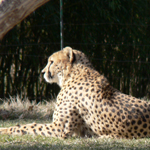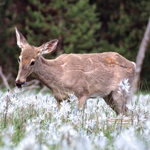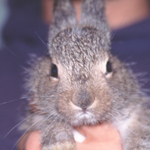|
What does it take to get a graduate position? Competition for acceptance into
graduate school in wildlife or ecology is fierce. In general, there are many
more applicants than there are spots in graduate school. Here are some things
that I look for in an applicant. Such qualifications are probably important to
most graduate advisors.
-
Excellent grades - most schools require a minimum
3.0 undergraduate GPA. Obviously, higher GPA's are better. However, small
differences probably aren't important. Thus, I would choose a 4.0 student
over a 3.0 student, but I would consider a 3.5 equivalent to a 3.6
-
Excellent GRE scores - most schools require a minimum 300
(verbal+quantitative) on the GREs. However, higher scores are often required
to be strongly considered. I routinely get applications from students with GREs in the
320 and even 330 range. However, some graduate advisors put little weight
in GRE scores.
-
Field Experience - I like to see at least a couple of
years experience. While I have considered students with almost no field
experience, I get many applications for graduate positions from people that
have substantial field experience. Obviously, the more field
experience you have the better. Field experience that is directly relevant
to the graduate project you are applying to do is especially beneficial.
Your first couple of positions (either while in undergrad or right after you
graduate) may have to be volunteer positions or otherwise positions that
pay very little - such positions are just as good (for getting into grad
school) as paid positions. Try to get positions where you are collecting
data and studying wild animals. Positions caring for captive animals, doing
interpretive (i.e., education) work, or lab positions are less useful. Lots
of field experience, especially experience that is directly relevant to the
graduate position you are applying for, can make up (at least a little bit)
for low grades or GRE scores
-
Publications - Generally, I receive very few applications
(for master's program) from students that have published research. Given that the most important and most difficult
thing you will do as a graduate student is publish your research, I (and
many other advisors) look VERY favorably on a candidate that has
already published something. Publications could greatly make-up for low
grades, low GRE scores, or little field experience. If you are applying for
a Ph.D. position, you probably won't be considered unless you have submitted
at least a couple of papers for publication. I am continually amazed at how
few master's students published their research (especially if they plan to
go on for a Ph.D.).
-
Good letters of recommendation - I put less emphasis on
letters of recommendation; other advisors rely on them heavily. The reason I
don't put too much weight in letters is that they almost always support
the applicant. Glowing letters of recommendation might help your chances of
being accepted. However, unfavorable letters of recommendation will almost
certainly eliminate you from consideration.
-
Good interview - I interview every applicant that I am
seriously considering for a position. Once I've made a short list of the
best applicants, then the interview is the most important factor in
determining who I will choose for a position. That's because I'm going to be
working with the student for several years, and I want to make sure that we
get along. Furthermore, I want to make sure that the student is prepared for
graduate school. These are the kinds of questions that I ask and the kinds
of answers I'm looking for:
-
Why do you want to go to graduate school? Graduate
school is a big commitment; I want to make sure you want to go for the
right reasons. Not being able to get a job, not knowing what you want to
do with your life, or wanting to hold on to the undergraduate lifestyle
are NOT good reasons for going to graduate school.
-
Why do you want to join my lab? I'm looking for
students that are interested in ecological concepts that mesh well with
my lab: predator-prey relationships, population dynamics, conservation.
Saying that you want to work with wolves (or other specific taxa) is not
a good answer. The best answer is "I want to answer the following
question......"
-
What do you want to do after you get your degree?
While this question is less important, and not knowing the answer will
not necessarily hurt your chances of being accepted, knowing exactly
what you want to shows planning and determination.
If you have any questions about these requirements, or
work in my lab in general please contact me
|


